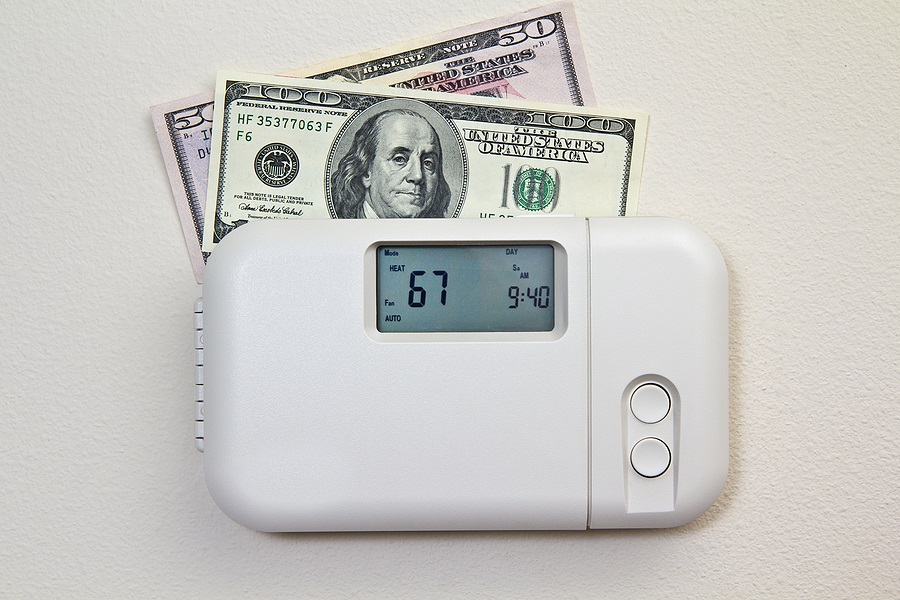Considering that heating our homes is typically the largest utility expense in American household – nearly 45% of residential energy bills – it’s a great place to start working to conserve energy. You will lower your household expenses and help the planet.

If your home has less than 12 inches of insulation, chances are you’re losing valuable heat out through walls and particularly ceilings. Evening adding insulation to your attic floor to prevent it from escaping can produce significant savings.
It may seem like a minor detail, but make sure your ceiling fans are running in a counter-clockwise direction during cold months to push the warm air that rises back down into living spaces.
Remember to open the curtains on your south-facing windows during the day to allow the warm rays of the sun to add heat naturally to your home. Don’t forget to close them again at night to keep the chill out.
Sealing up air leaks and gaps around windows and doors has a HUGE impact on energy efficiency. Caulk windows and apply weatherstripping to doors, along with any other drafty areas of the house. In a pinch, use fabric draft stoppers at thresholds and window sills.
Lowering your thermostat setting to just 68 degrees can save a significant amount of energy over the course of the year, according to the Department of Energy. To learn more, take a look at Department of Energy’s thermostat guide!

Most hot water heaters are set higher than necessary, using far more energy to maintain temperature. Turn your water heater thermostat down to between 110 and 120 degrees for a more efficient operating setting (you won’t notice the difference).
Make sure nothing is blocking good heat transfer from your registers into your rooms. Keep your furniture and window treatments away from blocking heating vents. Also, always keep heating vents and registers clean with a good vacuuming so they can work effectively.
Dirty furnace filters make your heating system work harder than it needs to, therefore, less efficiently. During heavy heating times, change filters monthly; every three months otherwise.
When a heating system is kept well maintained and operating cleanly, it runs at top efficiency. Be sure to get your annual “tune up” of your heating system by a qualified technician to ensure your system is working properly. This will also extend the lifespan of your system.
Want more energy efficiency information? Check out this Energy Saver Infographic from the Department of Energy.